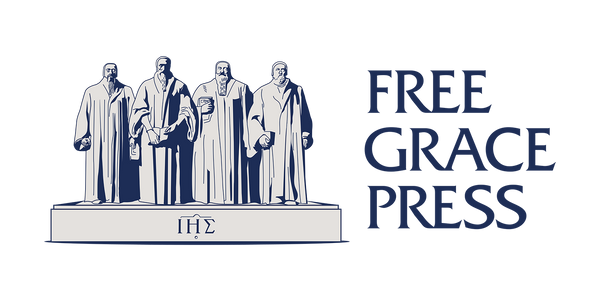Jeffrey D. Johnson
The Revealed God
Clothbound Hardcover with Dust Jacket (Shrink wrapped!)
6" x 9"
304 pages
Jeffrey D. Johnson’s interview with James White on the Dividing Line Podcast.
Description
An Introduction to Biblical Classical Theism
What role should philosophy play in shaping our understanding of the nature of God? Is there a basic agreement between Plato’s and Aristotle’s doctrine of God and the God of Scripture? Were the Scholastics wise in seeking to harmonize Platonism and Aristotelianism with Christianity? Is understanding the Scholastic heritage necessary in understanding the doctrine of God as expressed in the Protestant confessions of the sixteenth and seventeenth century? The Revealed God answers these questions by showing how philosophy is in opposition to special revelation. Because philosophies of this world are not built on natural revelation, they do not share a common foundation with the Christian worldview. The various impersonal conceptions of God purported by classical, modern, and post-modern philosophy directly oppose the personal God of Scripture. Instead of borrowing from the spoils of pagan philosophy, Christians should reject philosophy and build their doctrine of God exclusively from divine revelation. If we want to know God, we must know the God of revelation!
Endorsements
There is nothing more life-changing than to know that the eternal, unchanging God has spoken. God’s words are words of self-disclosure. Furthermore, if God is to be known, he must take the initiative to reveal himself to fallen, finite creatures. These truths should be precious to the Church. But today, God’s revelation in nature and in Scripture, and the use of philosophy to articulate the doctrine of God, are all hotly contested issues. Sometimes the rhetoric is uncharitable at best. Into this fray Jeff Johnson has entered once again. Jeff sees a truly fundamental difference between philosophical classical theism and biblical classical theism. Jeff argues that it is the sufficient Scriptures, the inspired self-disclosure of God, that authoritatively reveals God’s transcendence and immanence. The God of creation has been revealed in His own holy Word and in the person of His Son, Jesus Christ. It is this revelation alone that gives us a true knowledge of God. With much heat in this debate, it is my hope that there might be some fruitful discussion because of Jeff’s hard work.
— Dr. Brian Borgman
It is so important for Christians to understand what their options are when it comes to thinking about God. Johnson's book offers an easy to read introduction to rival models of God. This will leave readers with much food for thought as they continue their journey towards knowing God well.
— Dr. Ryan Mullins
Over the centuries, churches, denominations, and individual theologians have moved away from dedication to sola scriptura and the ultimate authority (and divine nature) of Scripture toward human philosophies and traditions with always predictable results. Jeff Johnson is providing a much-needed clarion call to avoid this error in our day by explaining the difference between Biblical Classical Theism and Philosophical Classical Theism. This is a much-needed discussion and correction of current trends. May God bless it to the edification of his church.
— James White
Though this book deals throughout with highly philosophical concepts, the author is to be commended for writing in a simple style that makes these difficult matters much more accessible to the rest of us. This book argues that there is not a simple adoption by the Reformation of Thomas Aquinas’s melding of Philosophical and Biblical Classical Theism. I have for a long time thought that this is the case. Dr. Johnson’s book deserves more than a dismissive response. There will certainly be Reformed brothers who disagree. But this book needs to be answered and not merely dismissed.
— Dr. Sam Waldron
Author, A Man as Priest in His Home
In The Revealed God, Jeffrey Johnson reminds Protestants that they must not forget their commitment to the supremacy of Scripture as the only sufficient and infallible authority when they construct their theology proper. If you’re looking to develop a doctrine of God that’s faithful to the teaching of Scripture, I heartily recommend Johnson’s book as a preface to your study.
— Dr. Robert Gonzales
Editor, The Confessing Baptist
Author Bio
 Jeffrey D. Johnson is the founding pastor of Grace Bible Church and President of Grace Bible Theological Seminary in Conway, Arkansas, where he resides with his wife, Letha, and their four children. He is the author of several books, including The Church, He Died for Me, The Kingdom of God, The Absurdity of Unbelief, and The Sovereignty of God. Check out his other titles HERE.
Jeffrey D. Johnson is the founding pastor of Grace Bible Church and President of Grace Bible Theological Seminary in Conway, Arkansas, where he resides with his wife, Letha, and their four children. He is the author of several books, including The Church, He Died for Me, The Kingdom of God, The Absurdity of Unbelief, and The Sovereignty of God. Check out his other titles HERE.







